Soap and water is just the beginning
You already know it’s important to bathe and washup regularly, but how well you do so makes a huge difference. In fact, you might be making some rookie mistakes and not washing your body correctly. Here’s how to wash these body parts the right way.
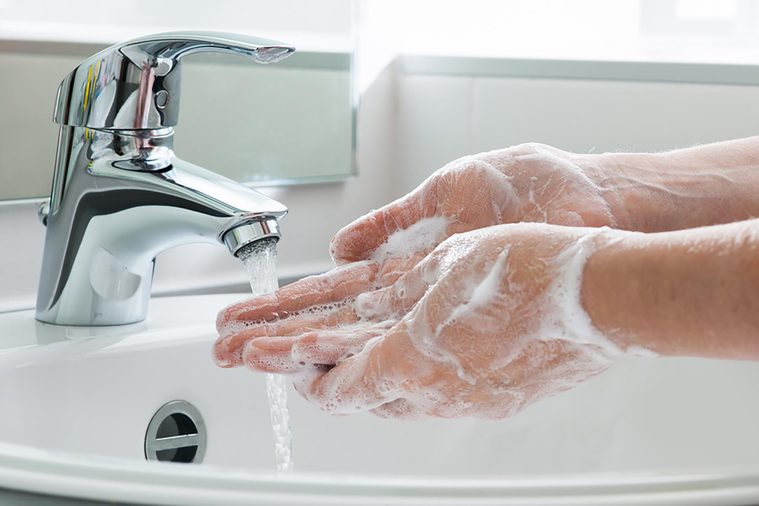
Your hands
You’ve surely heard it before: Wash your hands! But even if you do wash your hands after using the bathroom and before preparing or eating food, you may not be washing them thoroughly enough to prevent the spread of germs. “People should wash their hands with soap and water for at least 20 seconds, lathering the palms of hands, the backs of hands, between fingers, and under fingernails,” advises Debra Hagberg, MT, CIC, director of clinical affairs for PDI Healthcare, a leader in infection prevention products.
Skimping on hand-washing can allow the spread of germs from person to person and cause yourself and others to become sick. Yet the majority of people still don’t wash their hands as well as they should. “According to a study performed by Michigan State University in 2013, only 5 percent of people out of 3,749 individuals observed in public restrooms performed hand-washing long enough to kill germs,” reports Hagberg. And not washing long enough wasn’t the only negligent behavior the study found. About a third of the subjects didn’t use soap, and 10 percent didn’t wash at all. “The importance of hand hygiene in public health and global health cannot be understated,” Hagberg insists. Here’s why you really need to wash your hands.
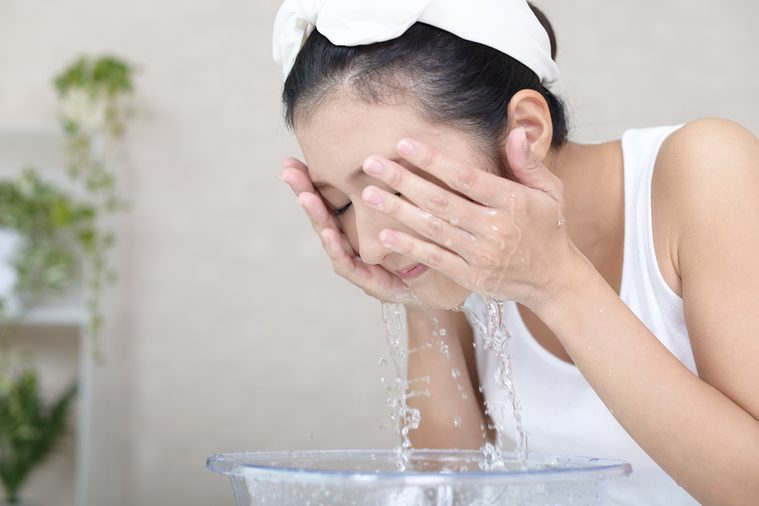
Your face
There’s no shortage of fancy treatments, face scrubs, and masks available today. With their promise to purge your face of dead skin cells, they’ve become a commonplace part of many cleansing routines. Of course, trying them every once in a while is totally fine, but make sure that you’re not using them to excess. “One can become overzealous with products and can actually damage the skin on the face with too many powerful acids…by over-exfoliating,” warns Adam Perlman, MD, MPH, FACP, the Director of Integrative Health and Wellbeing for Mayo Clinic Florida. “Exfoliation is a treatment and does not need to be done every day.”
“Many people are under the mistaken impression that they have to exfoliate,” adds Janet Prystowsky, MD, PC, a Manhattan dermatologist. “The reality is that washing normally every day or two with your hands and mild cleanser like Dove and then drying off with a soft towel will remove your dead skin cells adequately. Your skin cells turn over regularly and naturally without scrubs.”
Dr. Perlman also advises against relying on cleansing wipes to keep your face clean. “Cleansing wipes (whether for the body or face) are not an everyday wash,” he says. “They are meant for quick emergencies. Cleansing wipes will not do the same as a shower or proper face wash.“ Finally, no matter what you use to wash your face, make sure you’re rinsing it completely so that all of the soap or product is gone. Leftover soap buildup, especially under the chin, can cause acne breakouts. Here are more face-washing mistakes you don’t realize you’re making.
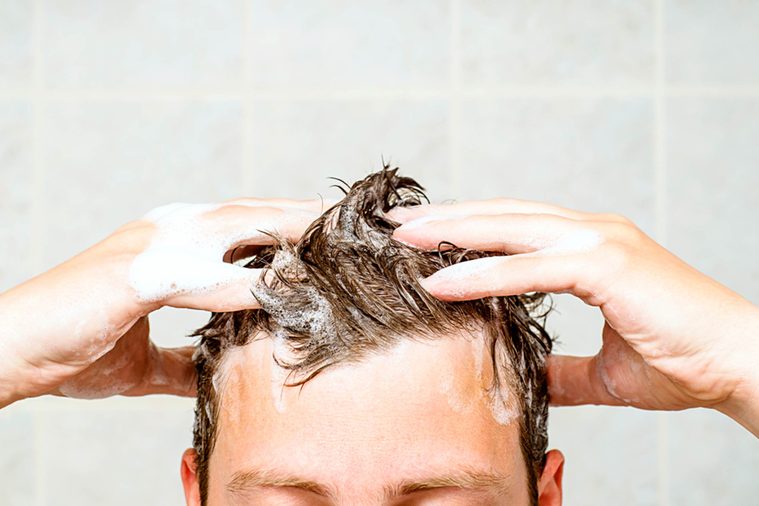
Your scalp
Even if you regularly wash your hair (which you should), your scalp itself may not be getting fully clean, especially certain parts of it. “Sometimes scalp cleansing is inadequate,” says Dr. Prystowsky. “I see this in some people with thick hair who miss portions of the back of the head or get shampoo and or conditioner there but do not completely get it out.”
So how should you be washing your hair to ensure that your scalp gets squeaky clean? “It is important to separate the thick clumps of hair to be certain that the water is reaching and rinsing all of the products,” Dr. Prystowsky suggests. “Also, using the pads of your fingers to massage the scalp during hair cleansing (instead of using your nails) will help protect your scalp skin from irritation.” If you use lots of hair products, have especially thick hair, or are experiencing any scalp itchiness or irritation, Dr. Perlman even recommends taking it a step further. “Get in the habit of using a scalp detoxifying shampoo at least once a month, and spend some time in the shower massaging it into your scalp to remove sticky product buildup, which can cause your scalp to itch and also hair to look less than clean,” he says. Look out for these other ways you’ve been showering wrong.
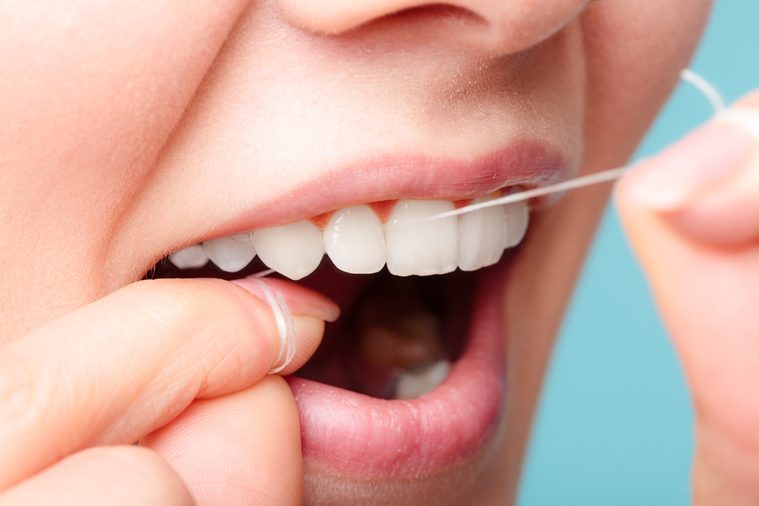
Your teeth
“People think brushing their teeth cleans their teeth. They’re wrong,” cautions Bill Dorfman, DDS, a celebrity cosmetic dentist. “Brushing their teeth is only half of what they really need to do. If you don’t also floss, you’re leaving the most detrimental bacteria in your mouth.” Dr. Dorfman warns that neglecting to floss allows the development of lactic acid, which eats away at your tooth enamel and causes cavities. He advises flossing just as often as you brush your teeth, at least twice a day. What’s more, Dr. Dorfman adds that many people aren’t even brushing the right way. “The best cleaning motion for a toothbrush is to angle your brush at a 45-degree angle into your tooth, right where your tooth meets your gum,” he suggests. “Do small circular motions there for about eight to ten seconds per area.” He adds that an electric toothbrush can also provide that motion. If you prefer manual toothbrushes, softer is better. Dr. Dorfman strongly advises against getting a manual toothbrush with a “hard” or “firm” setting, since these can permanently wear down the surface of your teeth and gums. “People think [a hard toothbrush] is better for you, but it’s actually worse,” he says.
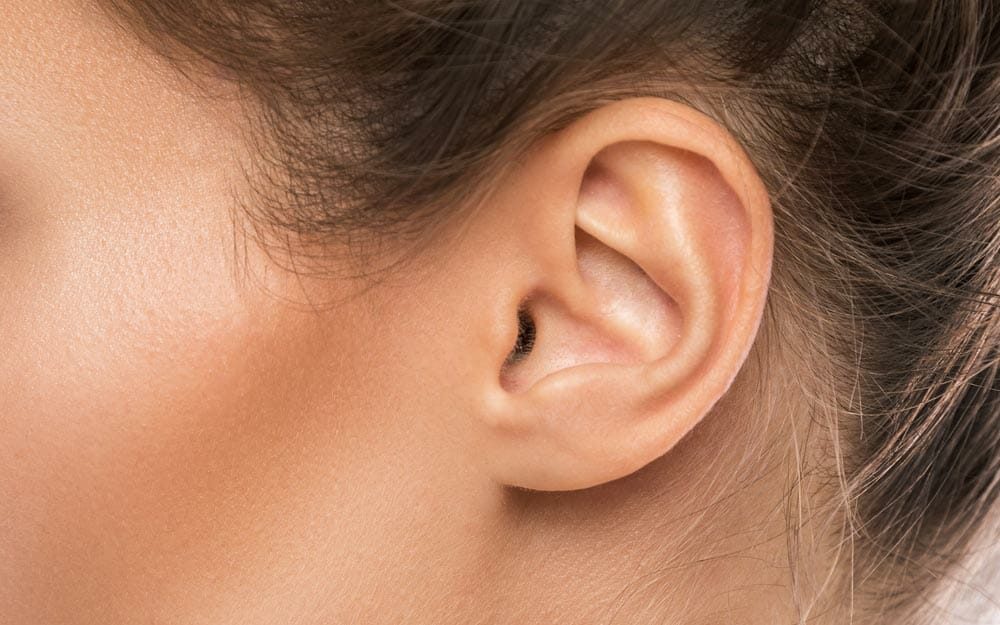
Your ears
The most common use for Q-tips is for cleaning out the ears, which is problematic, since it’s not what they’re for. In fact, that can even be dangerous. “While we want to get the wax out of our ears, it is there for a reason and one should be very, very careful when using Q-tips,” advises Dr. Perlman. Using Q-tips actually pushes earwax further into your ear rather than removing it. This can cause earwax to build up against your eardrum, putting you at risk for hearing loss or a blocked ear canal. So how do you clean inside your ear? Well, you really shouldn’t have to. The interior of your ear actually cleans itself; the wax will drain out on its own, lubricating and protecting the inside of your ear. If you really want to clean your ears, Dr. Perlman recommends over-the-counter earwax removal drops. The exterior of your ear is a different story. Make sure you’re washing it regularly using gentle pressure and a soapy washcloth. Don’t forget to wash behind your ears either. They’re one of the body parts that most often go neglected by bathers. These are the other body parts you don’t wash enough.
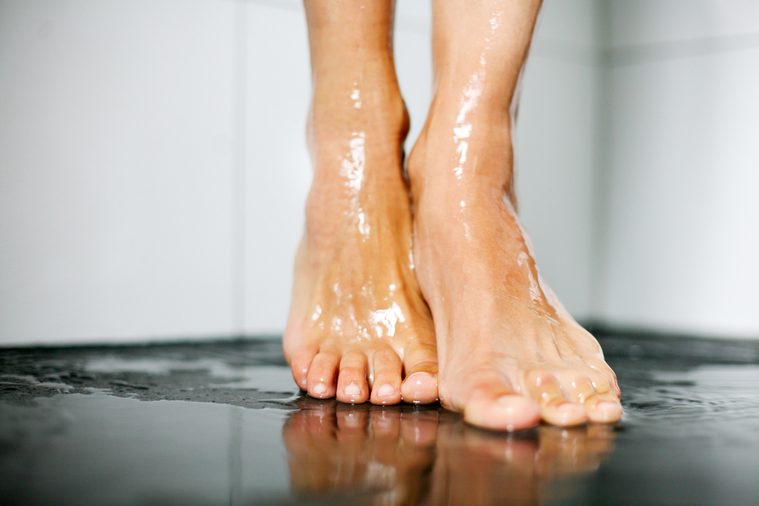
Your feet
Even though you may think your feet are getting clean when you’re in the shower, because all the water and soap from your body flows down onto them, that doesn’t constitute a thorough cleansing. After you shower, make sure your feet get a little TLC. Scrub them, especially the bottoms and sides, with a pumice stone at least every few days. And don’t forget to dry them, either. “Common foot conditions, such as toenail fungus, Athlete’s foot fungus, and plantar warts, can be caused by excessive moisture,” warns Dr. Bruce Pinker, DPM, an associate at the American College of Foot & Ankle Surgeons. “Although many individuals’ feet perspire excessively, often causing the aforementioned conditions, these foot ailments can also be caused by not drying one’s feet properly after bathing.” Dr. Pinker suggests that you thoroughly towel off your feet, including between your toes, after every shower. “This action takes only a few seconds, and it is essential to reducing unnecessary moisture in feet.”
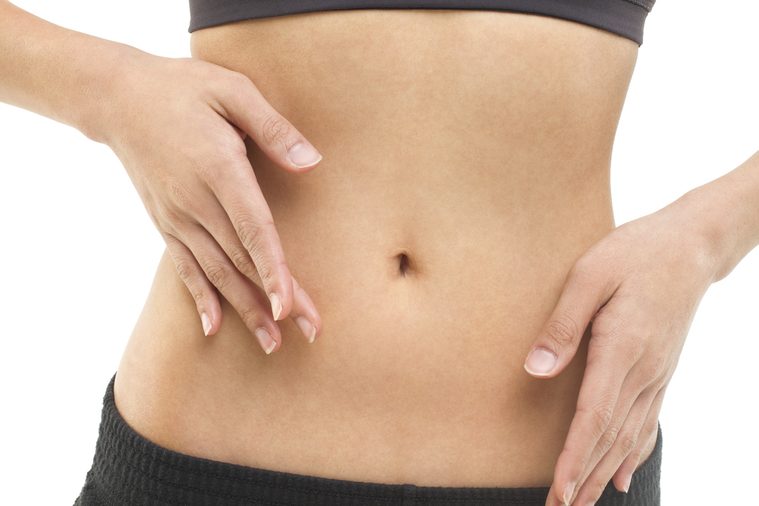
Your belly button
Never mind doing it wrong—unless you have it pierced, you probably don’t wash your belly button at all. And that’s not good. A study by the Public Library of Science found that the belly button is the dirtiest part of the body, populated with a multitude of different bacteria. Due to its location and shape (especially if you have an “innie”), the water that runs across it when you shower is not enough to get it fully clean. Worse still, if you touch your belly button, you can spread those germs throughout the rest of your body and even contaminate other things you touch. Keep your navel clean by gently washing it with a cotton swab soaked in warm water and soap. Don’t miss these other parts of your body you should never touch.

